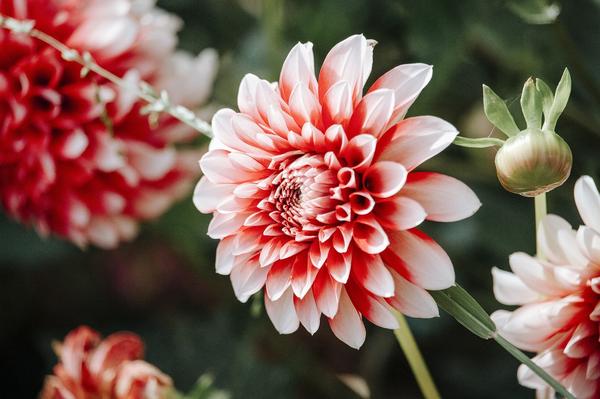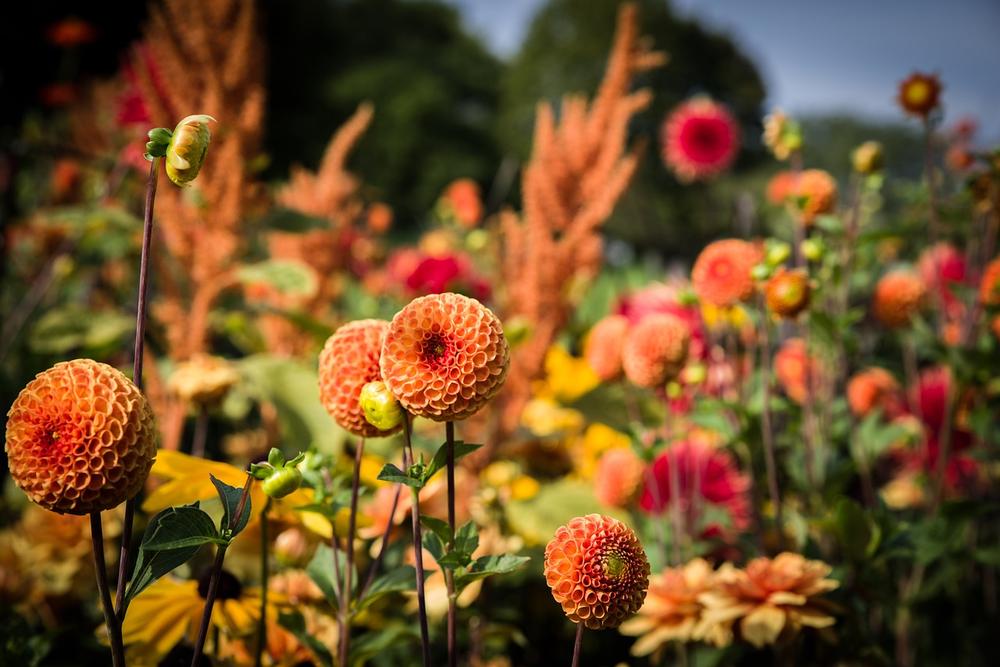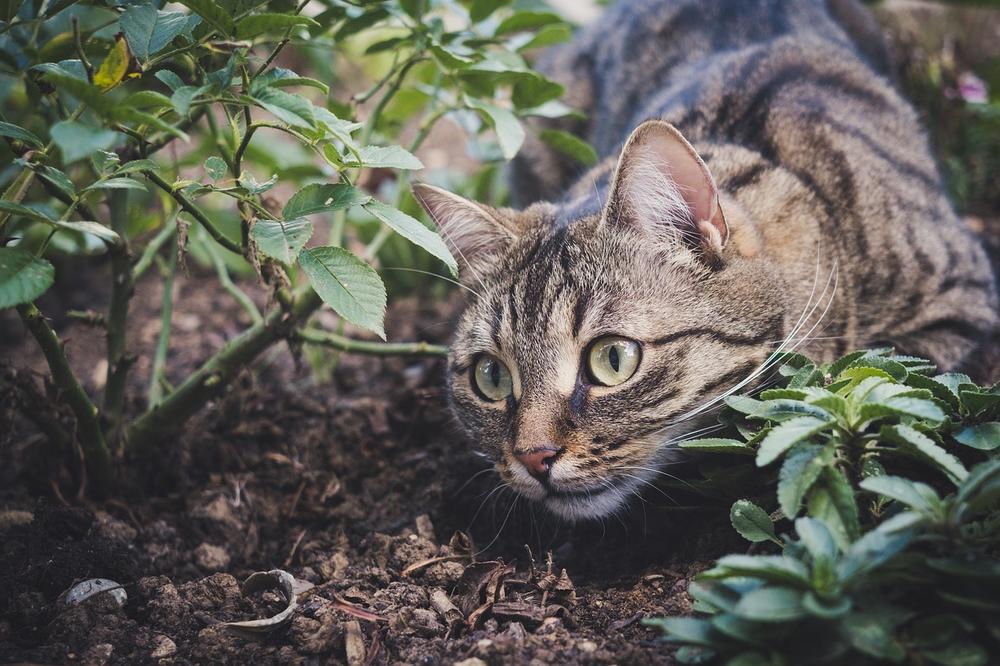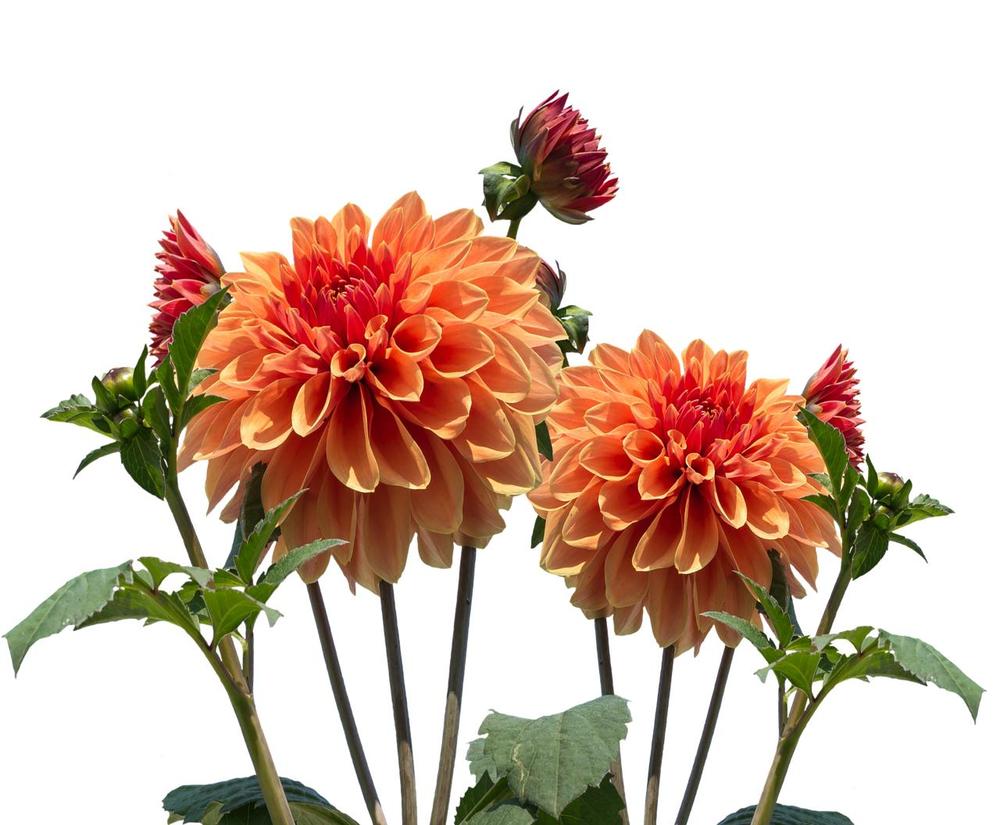Is Dahlia Toxic to Cats? (& What to Do if a Cat Consumes It)

Worried your feline friend may be in danger?
Concerned about the potential hazards lurking in your garden? 😱
Wondering if those dahlias are a ticking time bomb for your curious cat?
Well, let me ask you this:
Have you ever stopped to consider the hidden dangers blossoming beneath those vibrant petals?
Let's uncover the truth together, shall we?
Is Dahlia Toxic to Cats?
Yes, dahlias are toxic to cats, posing a potential danger to their gastrointestinal system. Ingesting any part of the dahlia plant can lead to vomiting, diarrhea, and even death. Dogs and horses should also avoid these flowers. The specific toxic element remains unknown.
Dahlias can cause serious trouble for your curious cat.
They're always on the lookout for something new to taste or pounce on.
Sadly, dahlias are actually toxic to cats - so don't let their innocent beauty fool you.
The danger level varies among cats. Some might only suffer from a tummy ache, but others could end up in much worse condition.
So, please, make sure those lovely dahlia plants are kept far away from your furry friend's grasp.
But why are dahlias so harmful?
Well, if your cat ingests any part of the dahlia plant, it can wreak havoc on their delicate gastrointestinal system.
We're talking vomiting, diarrhea, and worst-case scenario, even death.

And here's the kicker - it's not just cats.
Dogs and horses should also steer clear of these poisonous petals.
So, if you spot vibrant colors like white, yellow, red, purple, orange, or pink, that's your warning sign. According to the experts at ASPCA, dahlias are strictly off-limits for our feline friends.
Oh, and here's one more thing: nobody really knows which specific element in these flowers is responsible for their toxicity to cats.
But hey, better safe than sorry, right?
But what should you do if your curious cat manages to get a hold of a dahlia plant?
Well, I'm here to guide you through the necessary actions to take.
Trust me, you must act quickly to ensure your furry friend's safety.
So, let's dive right in and discover how to handle this potentially dangerous situation!
What to Do If Your Cat Consumes Dahlia
Keep your cat safe from further ingestion of the dahlia plant by removing any remaining parts of the plant nearby.

If your furry friend happens to consume or chew on any part of a dahlia plant, immediate veterinary attention is necessary. Taking quick action in these situations can help prevent any potential harm or health complications for your beloved companion.
Symptoms of Dahlia Poisoning in Cats
- Cats can have trouble breathing if they eat dahlias.
- Cats might start drooling a lot if they've been poisoned by dahlias.
- Eating dahlias can make cats' bellies hurt and upset their stomach.
- If a cat avoids food, that's a sign it might have eaten dahlias and gotten sick.
- Dahlias can mess with a cat's brain and motor skills if they eat them.
- Cats can get an itchy rash from dahlias, which makes their skin red and angry.
- If a cat keeps scratching or pawing at its skin, that means the dahlias made it irritated.
- Eating dahlias can also give cats greasy skin and patches where the fur falls out. 🔴
- Vomiting and diarrhea are common problems for cats who ate dahlias.
- Remember, cats are sneaky and might try to hide their symptoms, so pay attention.
If your cat has mild symptoms from eating dahlias, you can take care of them at home. But if the symptoms are severe or last longer than 24 hours, you better take your cat to the vet.
Also, if your cat already has health issues, the poisoning might be worse for them.
And if you're looking for more information on plant toxicity for your beloved feline friend, I've got you covered.

Check out my valuable source at Are Snapdragons Poisonous to Cats.
I assure you, it's a crucial read that will help ensure the safety and well-being of your furry companion.
Treatment for Dahlia Poisoning in Cats
Here's what you need to know and do:
- Cats with dahlia poisoning need support and care. They'll get IV fluids to cleanse their system and keep them hydrated.
- The seriousness of the poisoning depends on how much they ate and their overall health.
- Eating a little bit may just cause some upset stomach and throwing up. But if they eat a lot or the whole plant, it can block their intestines and become life-threatening.
- It's crucial to rush your cat to the vet right away if they eat any part of a dahlia or rose plant because they are highly toxic.
- During treatment, your cat should take it easy for about a week and get plenty of rest.
- To help them recover, they might get anti-nausea shots and other supportive care.
- If your cat has severe reactions, make sure to document all the symptoms carefully, as there are no specific tests for dahlia poisoning.
- The vet will rely on physical exams and maybe even scans to diagnose the issue in their digestive tract.
- Usually, you won't need follow-up appointments unless there are other problems that come up after treatment.
- The best way to prevent poisoning is by keeping your cat away from dahlia plants altogether.
You should always seek immediate help from a vet if your cat has dahlia poisoning.
Preventing Dahlia Poisoning in Cats
You want to keep your furry friends safe and healthy, right? 😺
If you have cats at home, you need to be careful with certain houseplants, like dahlias.
Here's what you can do to prevent dahlia poisoning in cats:
- Keep them away from dahlias, lilies, tulips, daffodils, and roses - they're all toxic for cats and can make them sick.
- Lilies, especially tiger lilies and daylilies, can cause kidney failure in cats if eaten. So it's best not to have them around.
- Roses have this thing called phenols which can harm a cat's liver and kidneys. So don't let them near these pretty flowers.
- Give your cats plenty of safe toys and things to do, so they don't get too curious about harmful plants like dahlias.
- Don't let your cats go near any unfamiliar plants unless you know for sure they won't hurt them. Do some research first.
If you follow these tips, you'll create a safe environment for your cats and ensure they stay away from anything that could harm them.
Keeping Your Cats Safe from Dahlia Poisoning
- Dahlias are poisonous to cats and can cause gastrointestinal upset.
- All parts of the dahlia plant are toxic to cats.
- Immediate veterinary attention is necessary if a cat consumes dahlias.
- Symptoms of dahlia poisoning include vomiting, diarrhea, and abdominal pain.
- Severe symptoms may require a vet visit, especially in cats with underlying illnesses.
- Dahlia poisoning can range in severity, from mild stomach upset to intestinal blockage.
- Treatment involves fluid therapy, rest, and limited activity for about a week.
- Meticulous symptom documentation is necessary for severe reactions, as there are no medical tests.
- Prevention is key, keep cats away from dahlias, lilies, tulips, daffodils, and roses.
- Confirm the safety of unfamiliar plants before allowing cats near them.
And that wraps up today's article.
If you wish to read more of my useful articles, I recommend you check out some of these: Are Lilies Toxic for Cats, Are Stink Bugs Poisonous to Cats, Is Bog Laurel Toxic to Cats, Are Asparagus Ferns Toxic to Cats, and Are Peonies Poisonous to Cats
Talk soon,
-Sarah Davis